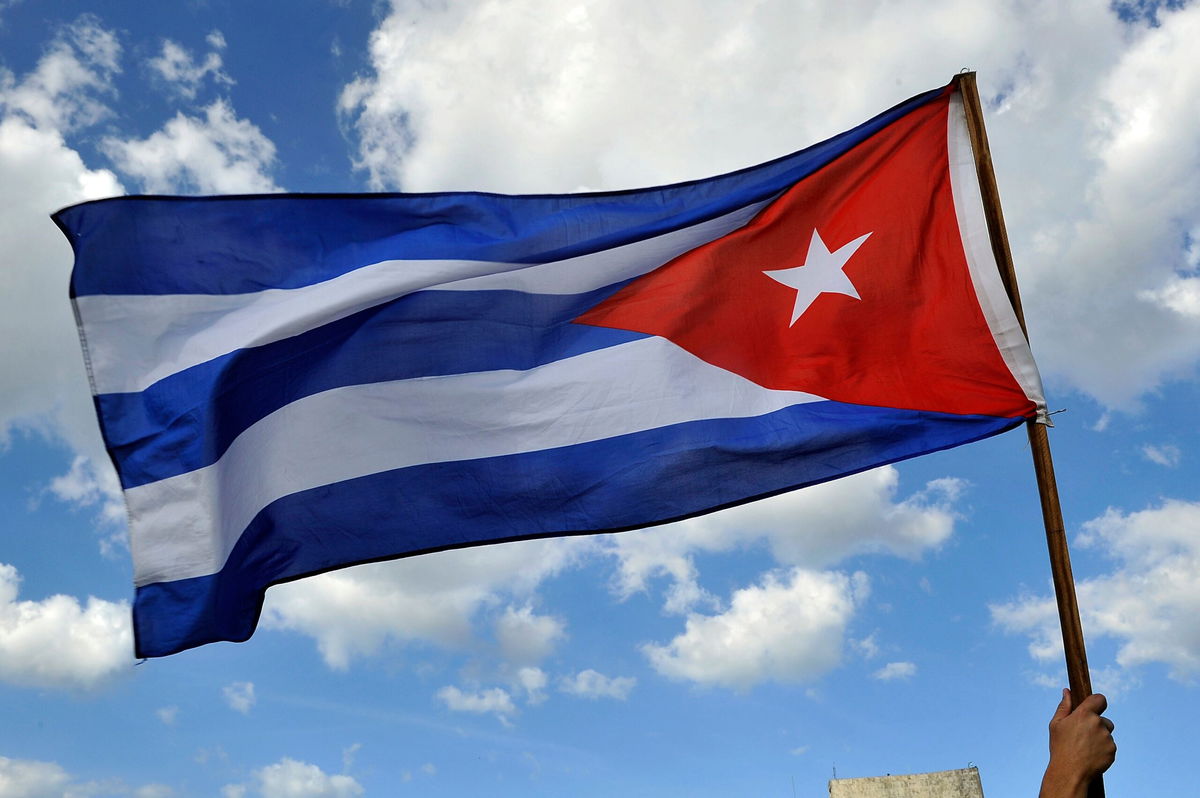Cuba vaccinates children as young as 2 in strategy to reopen schools, economy

The Cuban government has begun to vaccinate children as young as two years old for COVID-19.
By Patrick Oppmann, CNN
The Cuban children sat in a Havana hospital watching a brightly painted clown perform his earsplitting act. They were not there for the performance, but were waiting their turn to receive one of Cuba’s homegrown Covid vaccines.
In September, Cuba became the first country in the world to begin the mass vaccination of kids as young as age 2 against Covid-19.
While the coronavirus vaccines aren’t mandatory, parents and children have been filling clinics, hospitals and even converted schools to get the shot for their kids.
“I am relieved,” Laura Tijeras said just minutes after her 4-year-old daughter Anisol got the first dose of Cuba’s home-grown Soberana, or Sovereign, vaccine. “A lot of people are still getting sick and with the vaccine. We are more protected.”
During a single day at a policlínico in Havana, where CNN and other media were invited to film the vaccinations, more than 230 children ages 3 to 5 were vaccinated, the clinic’s administrator said.
To put kids at ease, doctors and nurses wore Mickey Mouse ears above their uniforms and brought in a clown with a speaker system to perform for them at full volume.
Like adults receiving vaccinations, children in Cuba will require three shots before they are considered fully vaccinated.
With the arrival of the Delta variant in Cuba, cases among children have skyrocketed.
“It’s alarming the numbers of infections of the new coronavirus that have occurred in Cuba in the last few months in the pediatric population,” wrote Cuban Health Minister Jose Portal Miranda in an article on the government Cubadebate website in September.
“Many of the pediatric patients reported in serious or critical condition are newborns,” he wrote.
So far during the pandemic at least 117,500 minors have been diagnosed with Covid in Cuba, according to official statistics. The government has not said how many children have died in Cuba during the pandemic. But since the beginning of August, 10 minors, children and infants have been listed as having died in daily press briefings given by the Health Ministry.
The spike in cases led Cuban officials to scrap plans to reopen schools in early September. As home internet access remains an expensive luxury for most Cubans, children receive their lessons by watching an educational channel on TV. Many Cuban parents complain that their children are being left behind in school, and with parks, movie theaters and beaches closed, there is nowhere to take them.
In September officials said they would begin vaccinating children as part of a plan to have more than 90% of the island immunized and reopen international borders by mid-November. Officials said it is unlikely that they could restart schools before then.
“It’s not a condition in order to attend our educational institutions when classes renew to be vaccinated,” said Vice Minister of Education Eugenio González Pérez on the Mesa Redonda TV program. “But we call on the Cuban family to vaccinate their children. We have a vaccine that’s 100% Cuban.”
Cuba’s drug regulator so far has given approval for emergency usage of three home-grown vaccines that Cuban scientists say are highly effective at preventing serious illness and death as a result of the coronavirus.
While critics have complained of the Cuban government’s excessive secrecy concerning their program, last week Cuban scientists said they had begun to share data with the World Health Organization to receive approval for their vaccines.
Cuban state-run vaccine producers initially expected to make enough doses for the island’s population of 11.2 million by September but later said that shortages — they blamed on the US trade embargo — had caused them to fall short of that goal.
In August, as the pandemic raged out of control in several provinces, Cuba for the first time began using China’s Sinopharm vaccine even though it is Iess effective than the immune response Cuban scientists say their own vaccines produce.
Some critics have said that if there is a shortage of vaccines then Cuba should prioritize vaccinating at risk populations like the elderly and people with pre-existing conditions ahead of children.
But Cuban doctors carrying out the vaccination campaign on young children said the increased risks faced by kids had to be addressed immediately.
“It’s more difficult, but it’s gratifying to vaccinate a child,” said Dr. Auroly Otaño Orteaga. “You put the vaccine and you know they are going to be immunized and won’t have serious complications or even die from Covid.”
The-CNN-Wire
™ & © 2021 Cable News Network, Inc., a WarnerMedia Company. All rights reserved.